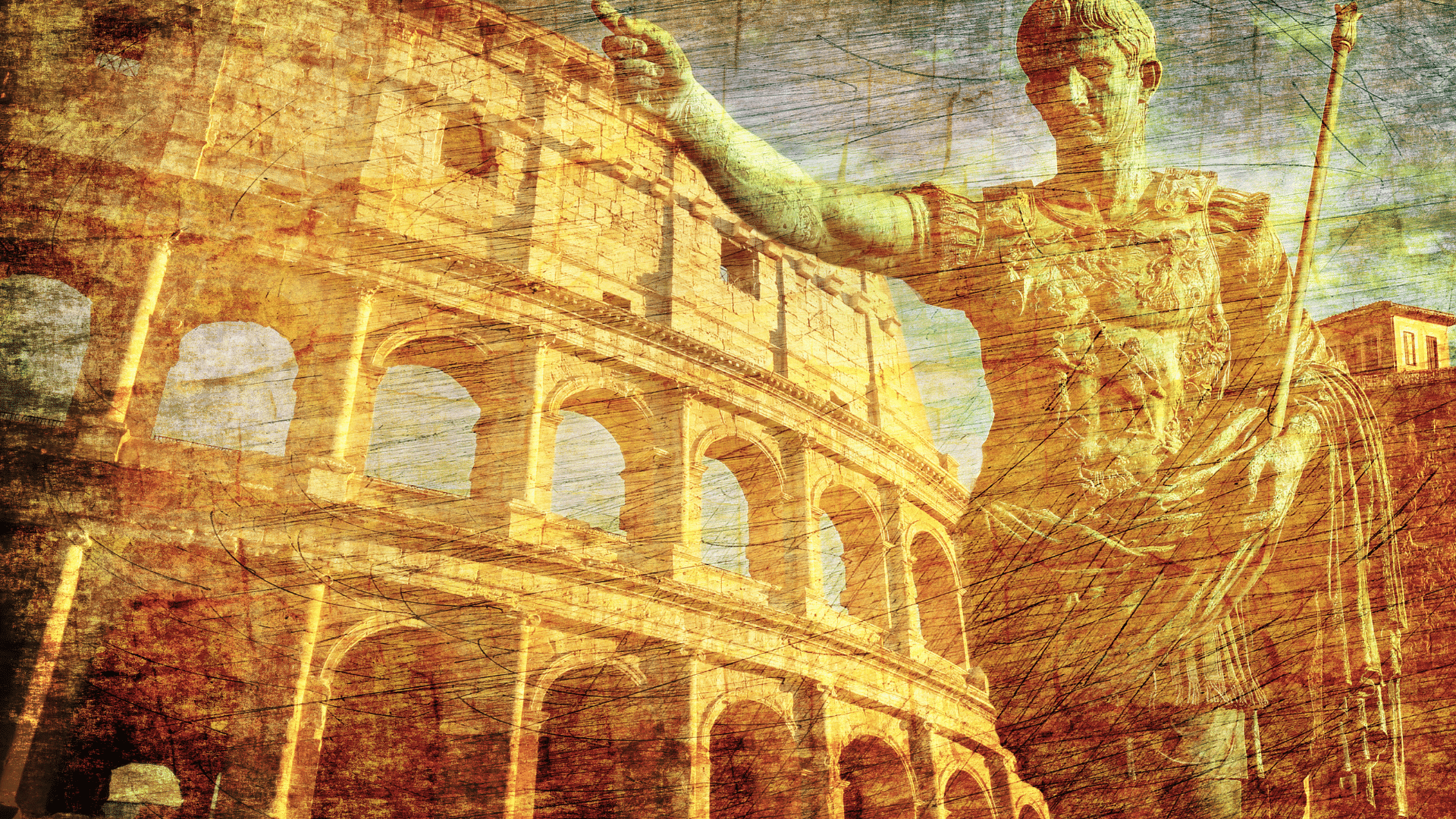Introduction
In the vast annals of Roman history, few events have captured the imagination of scholars and philosophers alike as profoundly as the Roman Triumvirate. This pivotal moment, rich in power plays, strategic maneuvers, and bloodstained paths, offers an unparalleled lens through which we can explore the intricate dance of human ambition and destiny. As we delve into this historical saga, we aim to provide a deep, philosophical analysis, drawing from the wisdom of Plato and the complex tapestry of Roman history.
The Genesis of Power: The Formation of the Triumvirate
The Roman Triumvirate, a coalition of Julius Caesar, Pompey the Great, and Marcus Licinius Crassus, was not merely a political alliance but a manifestation of raw power. In the Roman Empire, power was both a currency and a weapon, wielded by the adept and craved by the ambitious. The formation of the Triumvirate can be seen as a strategic masterstroke, aligning the interests of three of Rome’s most powerful individuals towards a common goal. Plato, in his exploration of political philosophy, might have viewed this alliance as a practical embodiment of his ideas on power dynamics, as outlined in works like ‘The Republic’.
The Philosophy of Power and Strategy
The Triumvirate’s existence throws light on the philosophy of power and strategy. Plato’s vision of an ideal society, led by philosopher-kings, starkly contrasts with the realpolitik of the Triumvirate. Here, power is not a means to achieve philosophical or moral ideals but an end in itself. The strategies employed by Caesar, Pompey, and Crassus reflect a deep understanding of Roman society’s power structure, mirroring the insights found in Plato’s allegories and dialogues. The Triumvirate becomes a case study in the pragmatic application of power, far removed from the idealistic visions of governance.
The Dynamics of War and Blood
The period of the Triumvirate was marked by war and blood, elements that are deeply ingrained in Roman history. The military campaigns, both internal and external, highlight the complex relationship between power and warfare. War was not only a tool for expansion but also a means to consolidate internal power. The philosophical underpinnings of this relationship can be traced back to Plato’s assertions about the nature of conflict and governance. The dynamics of war during the Triumvirate era offer a stark reflection on the blood-soaked path to power and dominance.
Roman History Through a Philosophical Lens
As we dissect the events of the Roman Triumvirate through a philosophical lens, we gain deeper insights into the human condition. Roman history, particularly this epoch, serves as a rich canvas to explore themes of ambition, betrayal, and the relentless pursuit of power. These themes resonate with the philosophical inquiries of Plato and his contemporaries, who sought to understand the driving forces behind human actions and societal structures.
The Legacy of the Triumvirate
The legacy of the Roman Triumvirate extends far beyond the immediate political consequences of its time. It offers enduring lessons on the nature of power, the complexities of human ambition, and the intricate dance of strategy and fate. For scholars and enthusiasts of Roman history and philosophy, the Triumvirate stands as a testament to the timeless nature of these pursuits.
Conclusion
Our journey through the Roman Triumvirate’s history, viewed through the prism of philosophy, underscores the timelessness of the themes of power, strategy, and human ambition. It beckons us to reflect on the echoes of these ancient events in our modern world and the enduring wisdom of philosophers like Plato.
As we continue to explore these rich historical and philosophical landscapes, we invite you to join our intellectual voyage. Register for Rick’s newsletter to embark on a journey of discovery, where wisdom and history intertwine, offering insights into the past and lessons for the future.
Call to Action
For those who seek to delve deeper into the fascinating interplay of history and philosophy, we encourage you to subscribe to our newsletter. Here, you will find a treasure trove of wisdom, insights, and scholarly discussions that will enrich your understanding and appreciation of the great historical stories. Join us, as we continue to explore the depths of history and philosophy, unraveling the mysteries of the past and their implications for our world today. Subscribe now, and become a part of a community dedicated to the pursuit of knowledge and wisdom.


